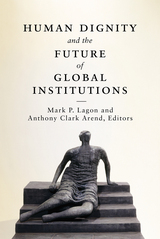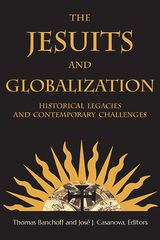
Many observers have underscored the reemergence of Germany as Europe's central power. After four decades of division, they contend, Germany is once again fully sovereign; without the strictures of bipolarity, its leaders are free to define and pursue national interests in East and West. From this perspective, the reunified Germany faces challenges not unlike those of its unified predecessor a century earlier.
The German Problem Transformed rejects this formulation. Thomas Banchoff acknowledges post-reunification challenges, but argues that postwar changes, not prewar analogies, best illuminate them. The book explains the transformation of German foreign policy through a structured analysis of four critical postwar junctures: the cold war of the 1950s, the détente of the 1960s and 1970s, the new cold war of the early 1980s, and the post-cold war 1990s. Each chapter examines the interaction of four factors--international structure and institutions, foreign policy ideas, and domestic politics--in driving the direction of German foreign policy at a key turning point.
This book will be of interest to scholars and students of German history, German politics, and European international relations, as well as policymakers and the interested public.
Thomas Banchoff is Assistant Professor of Government, Georgetown University.

What does human dignity mean and what role should it play in guiding the mission of international institutions? In recent decades, global institutions have proliferated—from intergovernmental organizations to hybrid partnerships. The specific missions of these institutions are varied, but is there a common animating principle to inform their goals? Presented as an integrated, thematic analysis that transcends individual contributions, Human Dignity and the Future of Global Institutions argues that the concept of human dignity can serve as this principle.
Human dignity consists of the agency of individuals to apply their gifts to thrive, and requires social recognition of each person's inherent value and claim to equal access to opportunity. Contributors examine how traditional and emerging institutions are already advancing human dignity, and then identify strategies to make human dignity more central to the work of global institutions. They explore traditional state-created entities, as well as emergent, hybrid institutions and faith-based organizations. Concluding with a final section that lays out a path for a cross-cultural dialogue on human dignity, the book offers a framework to successfully achieve the transformation of global politics into service of the individual.

The Society of Jesus, commonly known as the Jesuits, is the most successful and enduring global missionary enterprise in history. Founded by Ignatius Loyola in 1540, the Jesuit order has preached the Gospel, managed a vast educational network, and shaped the Catholic Church, society, and politics in all corners of the earth. Rather than offering a global history of the Jesuits or a linear narrative of globalization, Thomas Banchoff and José Casanova have assembled a multidisciplinary group of leading experts to explore what we can learn from the historical and contemporary experience of the Society of Jesus—what do the Jesuits tell us about globalization and what can globalization tell us about the Jesuits? Contributors include comparative theologian Francis X. Clooney, SJ, historian John W. O'Malley, SJ, Brazilian theologian Maria Clara Lucchetti Bingemer, and ethicist David Hollenbach, SJ. They focus on three critical themes—global mission, education, and justice—to examine the historical legacies and contemporary challenges. Their insights contribute to a more critical and reflexive understanding of both the Jesuits’ history and of our contemporary human global condition.

A comprehensive series of essays exploring Peter C. Phan’s groundbreaking work to widen Christian theology beyond the Western world
Peter C. Phan’s wide-ranging contributions to theology and his pioneering work on religious pluralism, migration, and Christian identity have made a global impact on the field.
The essays in Theology without Borders offer a variety of perspectives across Phan’s fundamental work in eschatology, world christianity, interreligious dialogue, and much more. Together, these essays offer a comprehensive assessment of Phan’s groundbreaking work across a range of theological fields. Included in the conversation are discussions of world Christianity and migration, Christian identity and religious pluralism, Christian theology in Asia, Asian American theology, eschatology, and Phan’s lasting legacy.
Theology without Borders provides a welcome overview for anyone interested in the career of Peter C. Phan, his body of work, and its influence.
READERS
Browse our collection.
PUBLISHERS
See BiblioVault's publisher services.
STUDENT SERVICES
Files for college accessibility offices.
UChicago Accessibility Resources
home | accessibility | search | about | contact us
BiblioVault ® 2001 - 2024
The University of Chicago Press









